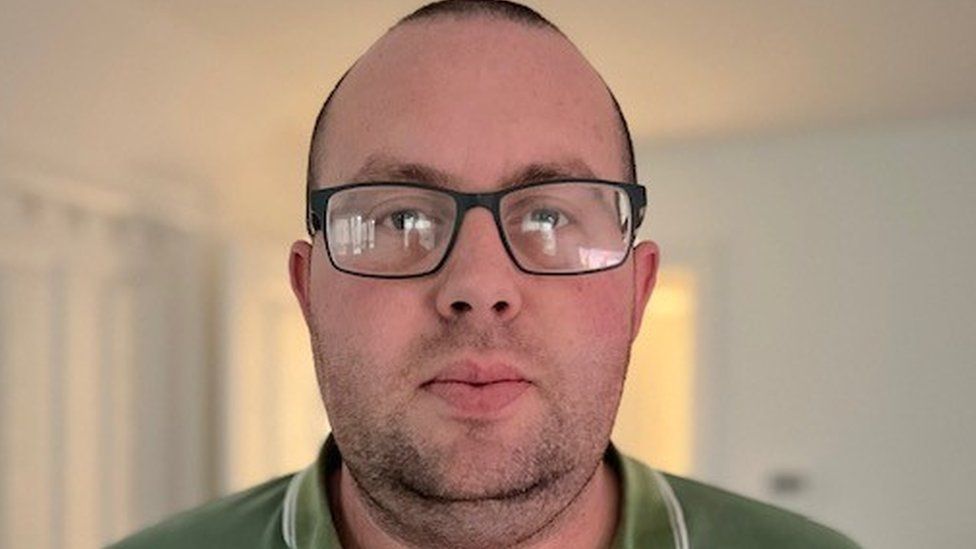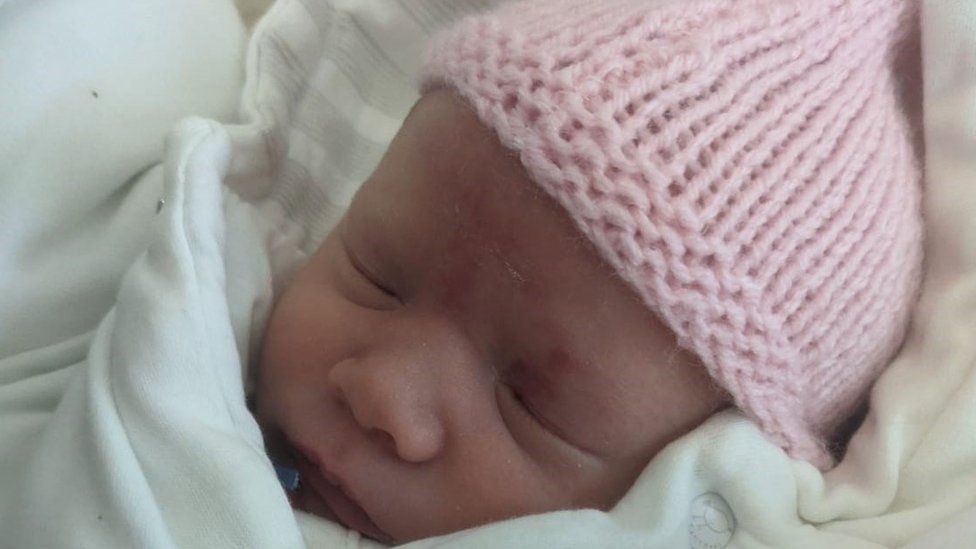Oxfordshire diabetic 'in limbo' after benefits rejection
Published3 hours agoShareclose panelShare pageCopy linkAbout sharingImage source, Ashley HallBy Katharine Da CostaBBC NewsA man with chronic health conditions said he is in limbo after being turned down for a disability benefit.Ashley Hall, 36, from Witney, Oxfordshire, suffers from Type 1 Diabetes and was recently diagnosed with bile acid malabsorption.It causes severe diarrhoea and prevents the body from absorbing nutrients, leaving him fatigued and in pain.Mr Hall was signed off work last May but was turned down for Personal Independence Payments (PIP) in August.His mandatory reconsideration [challenge to the benefits decision] was refused two months later. He now faces a seven-month wait for a tribunal in order to appeal the decision by the Department for Work and Pensions (DWP). The government said it has made millions of PIP decisions and 3% have been overturned.Disability benefits cost could rocket, report saysWelfare cuts worth billions planned by ministers”It’s got massive impacts, I constantly need to go to the toilet,” Mr Hall said.”I’m constantly in pain and tired all the time because I get about two hours sleep a night with it.”I can spend six hours a day on the toilet. I wouldn’t employ me on that and the doctors have said I’m not able to work.”He said that because his body cannot absorb nutrients his sugar levels are “so up and down and sporadic that I’m not able to commit myself to a job”.Image source, Ashley HallThe father-of-three gave up his maintenance job at a water company two years ago when he started suffering from ongoing bouts of stomach pain. He then took on a job as a delivery driver, which offered more routine shifts and shorter working hours but, when the pain started to get worse, he was signed off by his GP in May 2023. He was diagnosed with Bile Acid Malabsorption on 1 December.His wife is a full-time carer to one of their children who also suffers from Type 1 Diabetes and the couple receive universal credit, which Mr Hall says covers the rent and bills but leaves little else for family life.”I’ve always been strong mentally but this is grinding me down now,” he said, adding: “We don’t get to go out and do things as a family, it’s horrible.”PIPs are awarded based on how conditions affect the claimant and are meant to cover the additional living costs incurred as a result.In total, 3.2 million adults in England and Wales now receive PIP to help with the extra cost of living with a health condition or disability.The number has increased by about one million over the last decade and is forecast by the DWP to rise by another million over the next three years.According to DWP, in the five years to June 2023, 2.9 million initial decisions following a PIP assessment were made and, by October 2023, 8% were appealed and 3% were overturned at tribunal.Mr Hall said he found the assessment process for PIP stressful and that DWP’s questions made him feel “worthless”.The DWP said: “We support millions of people every year and our priority is they receive a supportive service and get the benefits they are entitled to as soon as possible.”Our disability assessors are qualified health professionals and decisions are made using all the available information. If someone disagrees with a decision, they can ask for this to be reconsidered and appeal to an independent tribunal, as Mr Hall has done in this case.”Follow BBC South on Facebook, X, or Instagram. Send your story ideas to south.newsonline@bbc.co.uk.More on this storyDisability benefits cost could rocket, report saysPublished18 September 2023Seven out of 10 win benefits challenges in courtPublished24 September 2021Related Internet LinksDepartment for Work and PensionsThe BBC is not responsible for the content of external sites.
Read more →

